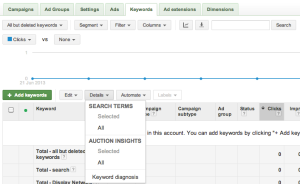So, the time that we all get to ‘enhance’ our PPC campaigns is finally upon us. All campaigns with Google Adwords that haven’t already upgraded to Enhanced Campaigns, will be automatically updated by Google today. Like everyone in the industry, Enhanced Campaigns have been a big talking point for me and a huge change for us all.
I’ve written a few blogs since the big announcement in February – The Good, Bad and Ugly Of Google’s ‘Enhanced Campaigns’ and The Winners and Losers Of Enhanced Campaigns and Dealing With Life With Enhanced Campaigns and my thoughts haven’t changed that much since rolling out all of my clients campaigns within the last few months.
Bad Points
- Still far too less control over mobile bid adjustments. It should still remain at keyword level in my opinion
- No control over tablet bidding – Tablet and mobile do not behave the same so this is rubbish
- CPC’s have seen increases of between 20-30%
Good Points
- Sitelink extensions available at ad group level, rather than campaign
- Sitelink scheduling
- Time of the day and geographic location bid adjustments
- More focus on being able to target the right person at the right time in display campaigns
- Bing isn’t rolling out the same changes
Less control over mobile bidding and zero control over tablet bids are naturally going to see an increase in CPC’s and in most cases conversion rates. Depending on the industry the results so far are varying. For some of my clients I have stayed clear of mobile bidding altogether and tablet hasn’t had as much impact as I’d expected on most.
There are ways to make the best use out of mobile bid adjustments just at ad group level, such as:
- Splitting keywords into ad groups which perform at different levels for mobile and apply different bid adjustments for each ad group
- Use single keyword ad groups so you have more control over bid adjustments – not the most ideal solution, but works in some campaigns
Neither of these solutions are ideal, but without any control over the decisions Google make, it’s just about making the best use out of the changes.
How have you found the rollover to enhanced campaigns? Will we finally start calling our campaigns just campaigns, rather than enhanced campaigns?




